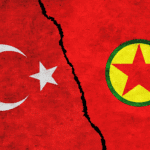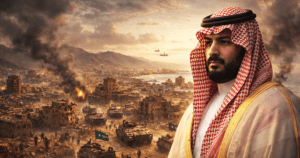In a twist few could have predicted a decade ago, Syria’s President Ahmed al-Sharaa—once known as Abu Mohammad al-Julani, the jihadist commander of al-Qaeda’s Syrian affiliate—has offered U.S. President Donald Trump a stunning diplomatic proposal that could reshape the Middle East. The deal reportedly includes constructing a Trump Tower in Damascus, formal recognition of Israeli control over the Golan Heights through a demilitarized zone, Syria’s entry into the Abraham Accords, and mineral and energy deals for U.S. companies. If realized, it would represent one of the most audacious geopolitical turnarounds in recent memory.
But it’s the symbolism of it all that truly staggers the imagination. Al-Sharaa, once a self-declared enemy of Israel and the West, fought under the nom de guerre “Golani”—a name drawn from the Golan Heights, the disputed territory that Israel seized from Syria in 1967, repelled again in 1973, and later annexed. Now, he may be the man willing to concede it, or at least formally demilitarize the region, recognizing Israel’s de facto control. The irony is unmistakable.
What’s more, this offer to Trump—set against the backdrop of the former U.S. president’s return to the Middle East tour—may culminate in a high-stakes summit in Saudi Arabia. It would be the first meeting between Syrian and U.S. presidents since Hafez al-Assad met Bill Clinton in the 1990s. For Trump, the optics of brokering peace with a former jihadist turned head of state, and tying it all to luxury branding in Damascus, is pure theatre—and potentially a strategic victory ahead of the U.S. election cycle.
Al-Sharaa’s bid to join the Abraham Accords is no less historic. Originally signed in 2020 by the UAE, Bahrain, Sudan, and Morocco, the accords marked a rare thaw in Arab-Israeli relations, facilitated by Washington. Syria, long a bastion of rejectionist rhetoric and home to Hezbollah and Iranian proxies, would be an unlikely candidate. But geopolitics is often the art of the possible. By removing Iran’s influence from Syria, courting Gulf partners, and offering normalization, al-Sharaa positions himself as both a reformer and a redeemer of Syria’s shattered image.
Still, this is no easy sell. The U.S. intelligence community remains split. Tulsi Gabbard and Sebastian Gorka have reportedly expressed caution, citing al-Sharaa’s past ties to jihadist violence. Others, like special envoy Steve Witkoff, argue that engagement is pragmatic—Syria’s alignment with the West could block Russian and Chinese influence, secure U.S. business access, and isolate Iran further. Even Senator Marco Rubio has allegedly signalled interest in backchannel talks, recognizing the broader implications for U.S. policy in the region.
The comparison with Libya is instructive. In 2023, Tripoli’s tentative talks with Israel and reports of Abraham Accords involvement triggered mass protests and political chaos. But Libya lacked the singular authority and rebranded leadership that Sharaa now commands in Syria. While his regime is not without opposition, his iron grip—tempered with recent gestures toward inclusion and reconstruction—gives him a stronger platform to pursue bold foreign policy shifts.
There are, of course, enormous risks. The Golan Heights remains a red line for many Syrians. Conceding it, even informally, could trigger nationalist backlash or insurgency. Likewise, domestic actors—remnants of the Assad regime, Iranian loyalists, and disillusioned jihadist factions—may seek to sabotage any reconciliation with the West. And for Trump, legitimising a former terrorist risks political blowback, particularly from neoconservatives and human rights advocates.
Yet if successful, the Sharaa-Trump detente could become the centrepiece of a broader regional realignment. It would transform Syria from a pariah state to a strategic partner and demonstrate that even those with the darkest pasts can re-emerge as agents of stability—if not redemption.
Realpolitik often rewards the bold. Whether the world is ready for Trump Tower Damascus, or a “Golani” giving up Golan, is yet to be seen. But in the cynical theatre of Middle Eastern diplomacy, the curtain may soon rise on an act no one ever expected. And perhaps, that’s exactly the point.















